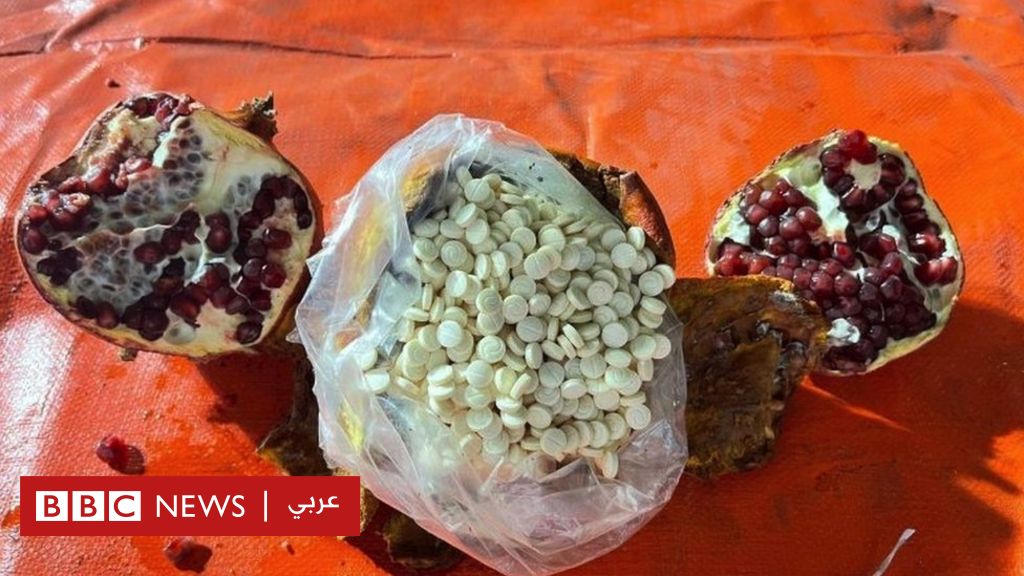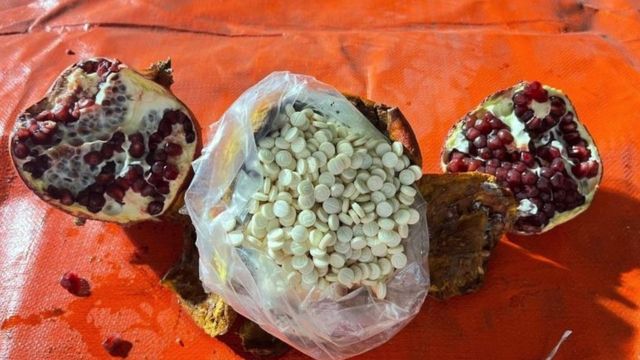
[ad_1]
A Saudi decision to stop importing Lebanese agricultural products has sparked widespread controversy and raised many questions about its causes and implications.
This follows the announcement by the Saudi authorities to prevent the entry of Lebanese vegetables and fruits on or via its lands, from next Sunday, for “having used them to smuggle narcotics”.
In an official statement, the Saudi Interior Ministry said it had noticed an increase in attempts For Target the Kingdom of drug traffickers in Lebanon Demand the Lebanese government to provide guarantees to stop “systematic” smuggling operations.
In the first response to the Saudi statement, the Lebanese Minister of Foreign Affairs and Expatriates said he had conveyed the ban decision to senior officials and called on his country’s authorities to do everything possible to thwart any attempts. which would harm Lebanese farmers.
The discussion is not without talking about politics
Soon the talk of smuggling a shipment of Captagon pills inside pomegranate fruits from Lebanon to Saudi Arabia turned into a material for communication and interaction.
As soon as the news spread, Twitter was buzzing with dozens of hashtags that may have made it to the top of the lists of the most talked about topics in Lebanon.
Under the hashtag #War_On_Drugs, many Saudi and Lebanese tweeters agreed on the need to unite to fight drug traffickers in the region.
Some commentators have also defended Saudi Arabia’s “right to protect its security and society from the danger of poisons”.
However, another team of commentators saw in the Saudi decision, which it described as “surprising”, political dimensions.
Critics of the resolution say that “the purpose of preventing shipments of vegetables and fruit is to put pressure on Lebanon and Hezbollah.”
On the other hand, Saudi commentators and activists see the news as “part of the war the party and its allies are waging against Saudi Arabia,” as they put it.
Other countries have previously accused Hezbollah and its supporters of funding networks active in the production and smuggling of drugs.
Although the party denied the accusations, many held it responsible for the Saudi decision to prevent the export of agricultural products to Saudi Arabia.
In this context, one commented: “A sovereign decision that every country has the right to take to protect its security”, while another replied: “Drug trafficking is a global problem that exists. between countries, but this is not the case ”. Prevents or stops import and export operations. It appears that Saudi Arabia made the decision for political reasons. “
While some insist on seeing the Saudi decision as “a political decision to find an alternative to Lebanese fruits and replace them with Israeli products,” others exclude it, calling for avoiding disputes and taking the issue seriously. .
Blogger comments have not been without harassment and political intrigue. Hezbollah supporters and Saudi Arabia supporters scrambled to make jokes and cartoons to ridicule the other side using hashtags such as “resist pomegranate molasses” and “Prince of Captain” .
refutation
Lebanese activists blamed their governments for their “silence and inability to end smuggling operations” and called on officials to intervene to protect the agricultural sector, which represents a source of income for tens of thousands of people.
On the other hand, the Union of Fruit and Vegetable Exporters and Importers in Lebanon denied that the cargo of pomegranate seized in Saudi Arabia was Lebanese, adding that it “had crossed from Syria to the Kingdom”.
Reuters also quoted a senior official in the Lebanese Agriculture Ministry – he did not name him – as saying that there is no document proving that the shipment of grenades confiscated at the port of Jeddah is of origin. Lebanese.
The Lebanese fear that this decision will increase economic pressure on their country, which is going through a stifling financial crisis, exacerbated by the repercussions of the Corona pandemic.
Saudi official data shows that the volume of Lebanese exports to Saudi Arabia amounted to 273.1 million riyals ($ 72.82 million) in the last quarter of 2020. The value of fruit and vegetable exports is estimated at 24One million dollars a year, according to the Lebanese Minister of Agriculture in the interim government.
Source link
